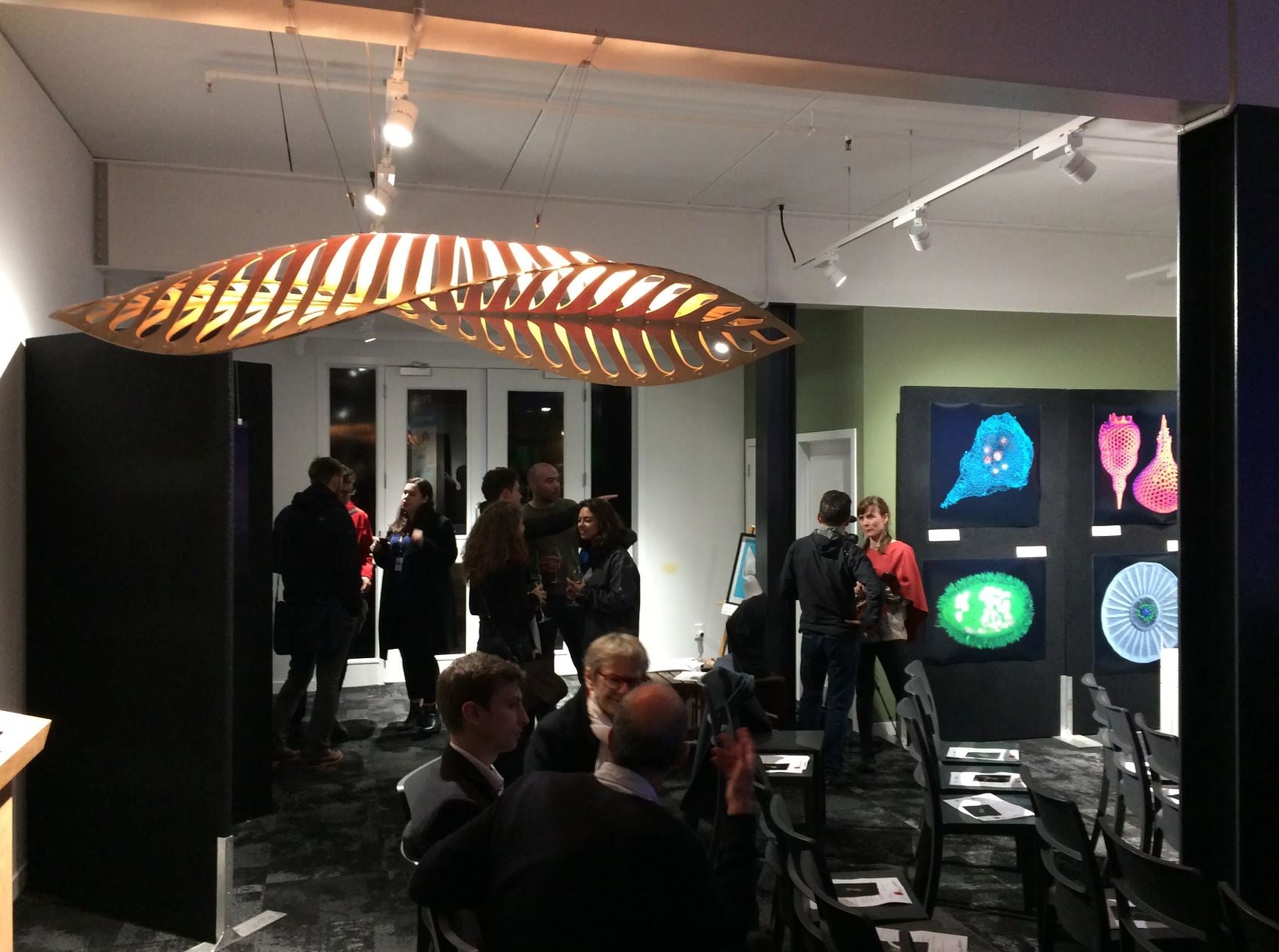
Navicula hanging in the Maritime Museum, Auckland.
Written By:
David Trubridge

Navicula hanging in the Maritime Museum, Auckland.
This week I spent an evening in the Maritime Museum in Auckland at an event organised by Plankton Planet* called ‘An Epic Voyage through Our Changing Seas.’ It was incredibly inspiring to be amongst so many people whose wild passion about the oceans was infectious. They were all talking about the sea whether as a Polynesian navigator, an archeologist, an oceanographer or a marine biologist. We were surrounded by an exhibition of the arrestingly intricate and beautiful forms of plankton, both as large colour photos and as 3D computer printed models.
As a designer, sailor and artist I have always marveled at the infinitely diverse structures of nature. Because of their innate beauty and the story that they tell, it was inevitable that diatoms would be my inspiration for a new collection of prototype lights we showed in Europe last year. Out of that came Navicula, and the Maritime Museum were kind enough to include one in this exhibition, hence my presence.
As I listened to the scientists and delved deeper into this subject, especially in the microscopic scale, I found myself becoming increasingly humbled by what I saw. Who are we to presume to design things when it has all been done so perfectly by the evolving life forms around us? What are our creations, what is our culture, compared to the teeming multitudes that we share this planet with? Consider this:
What does that mean about how much life there is throughout the oceans?! We think we are beginning to understand the universe while yet having only a glimpse of its unimaginable scale. The same applies to the oceans; maybe there are more life-forms here than there are stars in the universe? As I listened to the scientists talk about their work with the oceans, I came to realise the tiny limits of our knowledge. We do know our home, the land: the vast complexity of forests and teeming life within. But most of the biomass on the planet exists in the sea, beyond our gaze or even our imagination. Here there are no giant trees and relatively few megafauna. The scale is reversed: chlorophyll exists as infinitesimal specs of algae living inside single celled creatures like diatoms. Yet it produces more oxygen than all the forests of giant trees, in fact 50% of all oxygen produced on the planet, or in other words our every second breath.
I asked them how climate change is going to affect this vital environment. They shrugged their shoulders — not much if at all. This potent source of life has existed since the primordial soup that started it all and it will continue in much the same form. Highly evolved species like humans are vulnerable, but single celled creatures and bacteria can mutate so much faster and keep up with threats.
And it dawned on me that all our current panic about climate change, and its associated threats, might just be another manifestation of human hubris. We think we are so important — we have even invented religion to solipsistically tell us that — but in fact we are irrelevant in the big picture. That is both reassuring and scary.